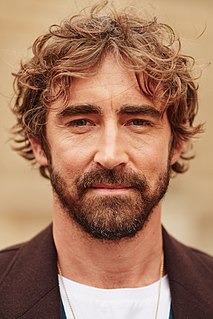A Quote by Chrystia Freeland
The tragedy of 9/11 and the bloody scrambling-up of the Middle East were painful reminders that the world had not yet reached any end-of-history ideal. But these events mattered less to the assumptions and strategies of huge multinational companies than one might guess.
Related Quotes
We live in a world made up more of story than stuff. We are creatures of memory more than reminders, of love more than likes. Being attentive to the needs of others might not be the point of life, but it is the work of life. It can be messy, and painful, and almost impossibly difficult. But it is not something we give. It is what we get in exchange for having to die.
And yet the world we live in-its divisions and conflicts, its widening gap between rich and poor, its seemingly inexplicable outbursts of violence-is shaped far less by what we celebrate and mythologize than by the painful events we try to forget. Leopold's Congo is but one of those silences of history.
It is sometimes said that the tragedy of an artist's life is that he cannot realise his ideal. But the true tragedy that dogs the steps of most artists is that they realise their ideal too absolutely. For, when the ideal is realised, it is robbed of its wonder and its mystery, and becomes simply a new starting-point for an ideal that is other than itself.
The last few years I've been doing the Middle East thing, and it's a tough decision whether to go there and try and knock off some events as a European Tour member, this year I think overall looking at my results, I played a little bit better on the West Coast than I have in the Middle East, so that was another determining factor for coming back here to an event that I have had some success in the past.




































